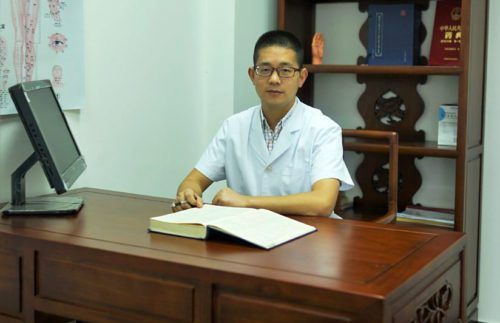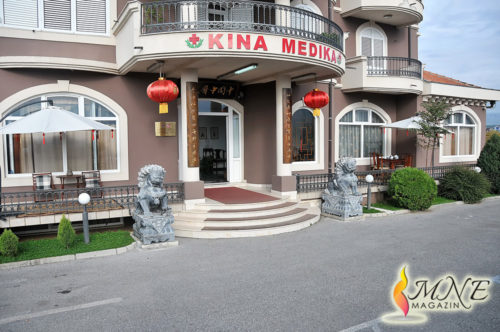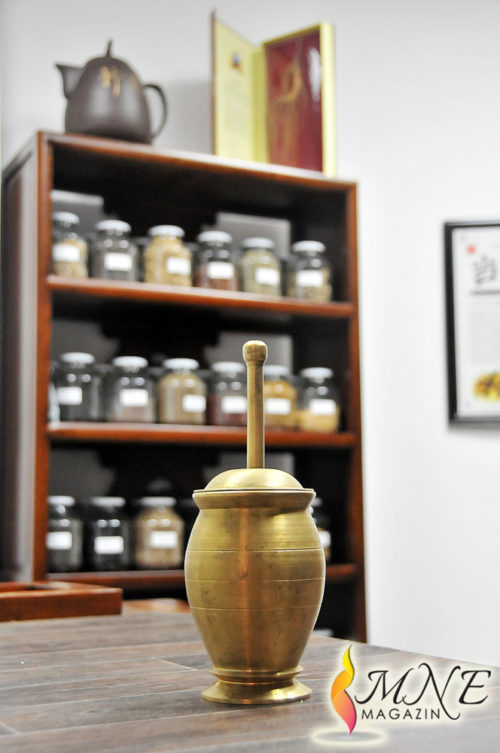
Chinese medicine and especially Chinese pharmacology on one side, and Chinese way of nutrition on the other, belong to the rich Chinese culture. According to Dr. Huang Shile from Specialist clinics ,,Kina Medika” in Podgorica, these two areas are often interfered in the development of pharmacology and principles of nutrition, so the ingredients that were used on daily basis in nutrition became medicines, and some plants that were being used for many years in medicinal purposes have become an important part of a healthy meal. There are many such examples, such as angelica, ginger…
– ,,Food pyramid” that is being used in Western medicine and nutrition overlooks that people in their diet should in certain proportions use different ingredients or groups of food, where some are healthier and more nutritious than the others, thus the pyramid practically represents equal rules for all people. In Chinese medicine, the patient is always approached individually, so that the diet is determined on the basis of each organism individually, our energies of yin and yang and other important parameters, so that is why the ,,food pyramid” only partially coincide with the principles of Chinese medicine – says Dr. Huang Shile.
 Speaking about a holistic approach to treatment, our interviewee says that this approach is the embodiment of theory of materialism and dialectical thinking in Chinese medicine, and that it permeates all aspects of traditional Chinese medicine, physiology, pathology, diagnosis, detecting of causes of disease and treatment process.
Speaking about a holistic approach to treatment, our interviewee says that this approach is the embodiment of theory of materialism and dialectical thinking in Chinese medicine, and that it permeates all aspects of traditional Chinese medicine, physiology, pathology, diagnosis, detecting of causes of disease and treatment process.
Dr. Huang Shile indicates that healthy food is a very present theme in contemporary society, worldwide. He believes that bad eating habits threaten the health of the organism and the growth and development of children, and that the return to proper nutrition is often an important prerequisite for the recovery from a whole range of diseases. He reminds us that every organism is different, therefore there are no universal rules for nutrition in Chinese medicine. But there are some general tips that apply to most patients and Dr. Huang Shile sets aside a few of them:

- Based on our age, height, weight, blood sugar level and levels of physical activity, it should be necessary to determine the average daily calorie intake and be guided by that parameter.
- Intake of carbohydrates should comprise 50% -60% of the total intake of calories, but at the same time, use of monosaccharides (glucose) must be strictly controlled.
- Eat more raw foods and vegetables rich in fiber, so that the daily intake of fiber reaches 40-60g, and in particular increase the intake of soluble fiber.
- Eat less sweets and foods with large amount of sugar and be sure to use more nutritious sweeteners, such as xylitol and others.
- Intake of protein should be properly controlled, so that it makes 15-20% of total calorie intake. In addition, the intake of protein needs to be changed in accordance with the age, physical activity, disease and other conditions that affect its quality absorption.
- Intake of fat should be limited to 20 -25%, so try not to eat the saturated fatty acids, as well as in times of hunger not rush immediately to the fast-food restaurants, because these foods will not keep you full.
- The daily amount of cholesterol should not go beyond 300mg.
- Daily intake of salt should be controlled to below 6g, and if you suffer from hypertension it should be less than 3g.
- Fruit is recommended between meals, not as a substitute for a meal and it should be eaten in limited quantities.
- Regular physical activity, such as brisk walking, running, climbing, tàijí etc, is very important. Patients with severe cerebrovascular disease, neuropathy, visual impairment and other acute complications should of course be careful that their training and exercise does not cause contraindications.
- Strictly avoid cigarettes and alcohol.
- Eat less but more often. It is recommended that we take 5-7 small meals during the day.
Mn.M.


